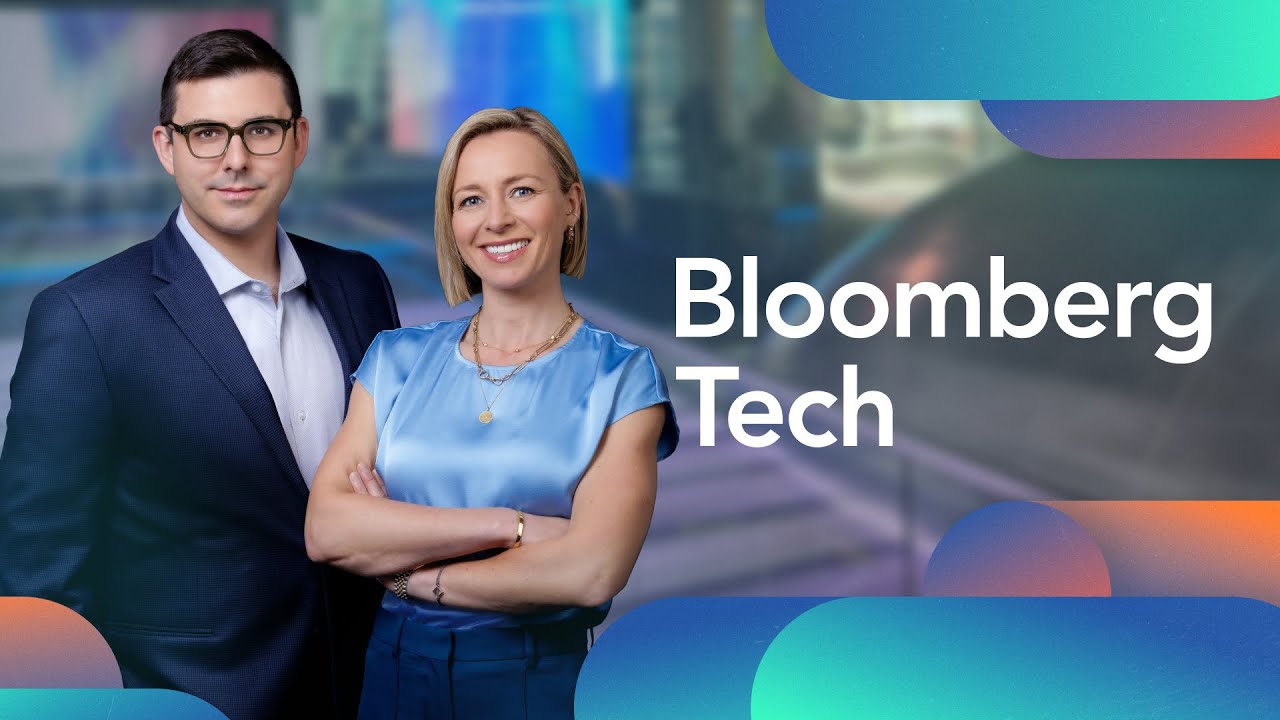The Bloomberg Tech segment highlights Nvidia’s historic $4 trillion market cap milestone driven by AI growth, SpaceX’s potential $400 billion valuation, and ongoing trade tensions impacting major tech companies like Apple amid semiconductor and tariff uncertainties. It also covers advancements in AI talent recruitment, foldable phone innovations, Amazon’s AI-enhanced Prime Day, China’s AI infrastructure challenges due to U.S. export controls, and the strategic balance between national security and economic interests in the global tech landscape.
The Bloomberg Tech segment opens with the historic milestone of Nvidia reaching a $4 trillion market capitalization, the first company ever to do so, driven by strong growth in AI-related sectors despite ongoing trade anxieties. Meanwhile, SpaceX is reportedly in talks to sell shares that would value the company at around $400 billion, highlighting its dominance in commercial space and Starlink services. Trade tensions remain a significant theme, with Apple facing pressure over potential tariffs, and White House trade counselor Peter Navarro suggesting Apple believes it is “too big to tariff,” though uncertainties persist around semiconductor and copper tariffs.
The discussion shifts to the broader tech landscape, including AI talent competition and executive changes. Meta is actively recruiting top AI talent, while X (formerly Twitter) sees leadership shifts with CEO Linda Yaccarino stepping down amid challenges under Elon Musk’s ownership. Samsung unveiled new foldable phones aiming to mainstream the technology by improving usability and lowering prices, signaling a growing market ahead of Apple’s anticipated foldable device launch. The segment also highlights the rise of AI startups like Mistral, which is seeking significant funding to compete in the generative AI space, emphasizing the high costs and strategic importance of AI infrastructure.
Amazon’s extended Prime Day event is another focal point, with the company leveraging AI tools like its shopping assistant Rufus to personalize deals and enhance customer experience. The event spans four days to accommodate the vast number of deals and shopper needs, targeting both essential household items and discretionary purchases. Amazon is also focusing on attracting younger customers with tailored discounts and offers, aiming to deepen engagement across diverse product categories. This approach reflects broader retail trends where AI and data analytics are increasingly central to driving sales and customer loyalty.
The report then turns to China’s ambitious AI infrastructure plans, particularly in energy-rich regions like the Gobi Desert, where massive data centers are being developed to support AI growth. However, China faces significant challenges due to U.S. export controls restricting access to advanced Nvidia chips, raising questions about how China will source the necessary technology. U.S. officials are intensifying efforts to prevent chip smuggling and maintain technological advantages, while trade negotiations continue to grapple with semiconductor access, rare earth elements, and talent development as critical factors in the ongoing U.S.-China tech competition.
Finally, industry leaders discuss the strategic balance between national security and economic interests in technology trade policies. They emphasize the need for a conducive investment environment in the U.S. to maintain leadership in AI and semiconductor innovation, while managing export controls carefully to protect sensitive technologies. The conversation also touches on the importance of attracting global talent and investing in domestic education initiatives. The segment concludes with updates on Meta’s investment in AI-powered Ray-Ban glasses and challenges faced by X AI, including leadership changes and controversies around its chatbot, underscoring the dynamic and rapidly evolving nature of the tech industry.
